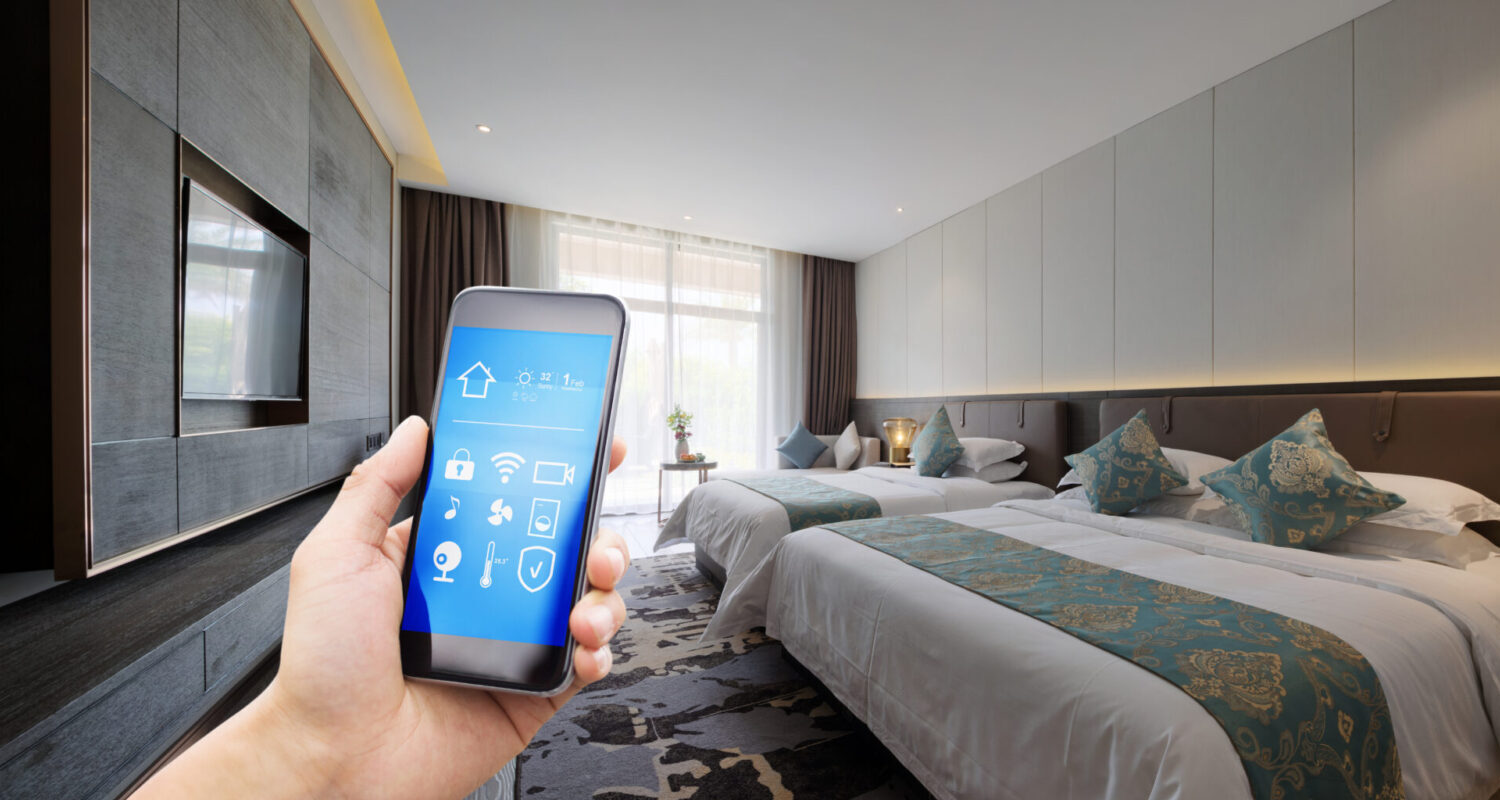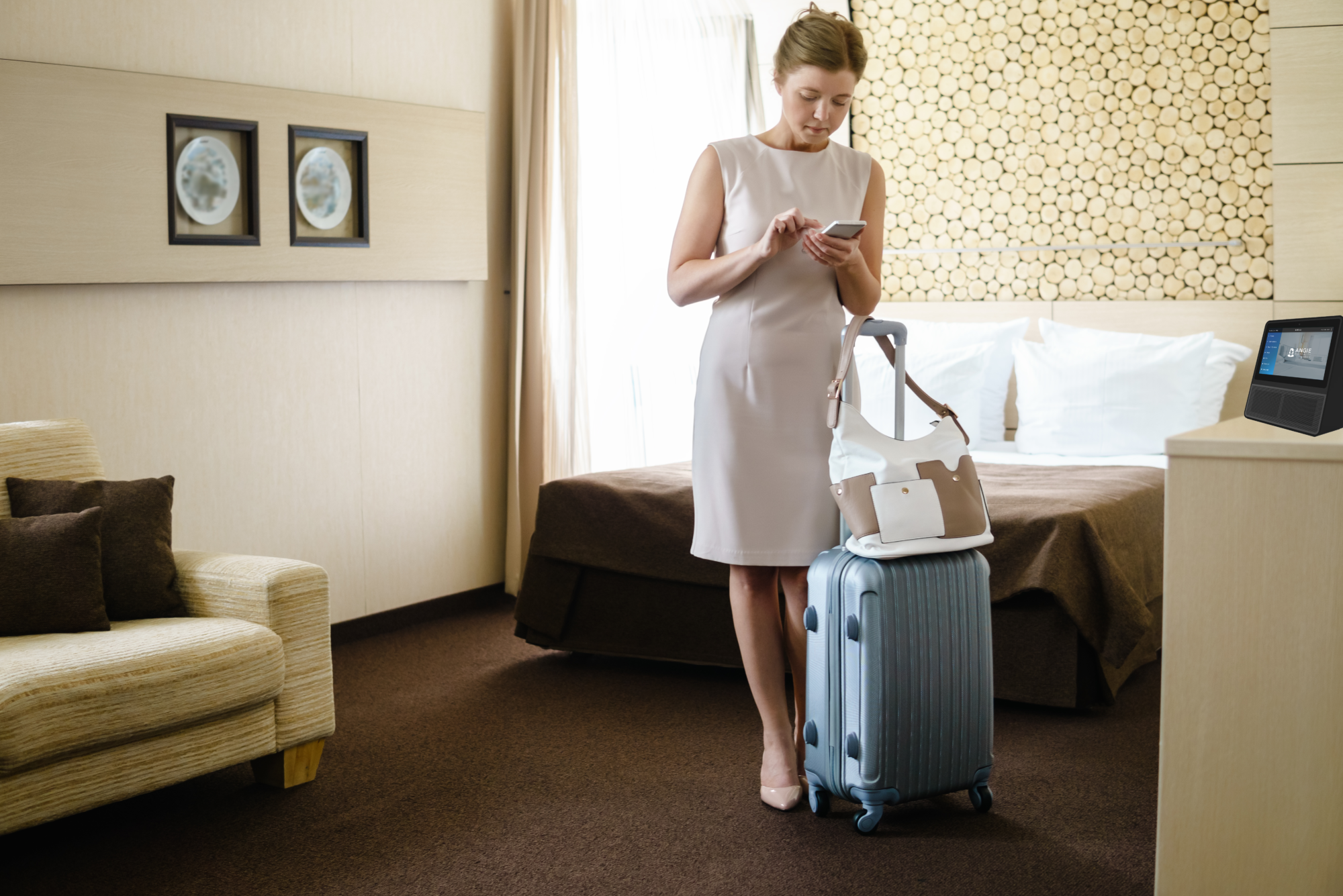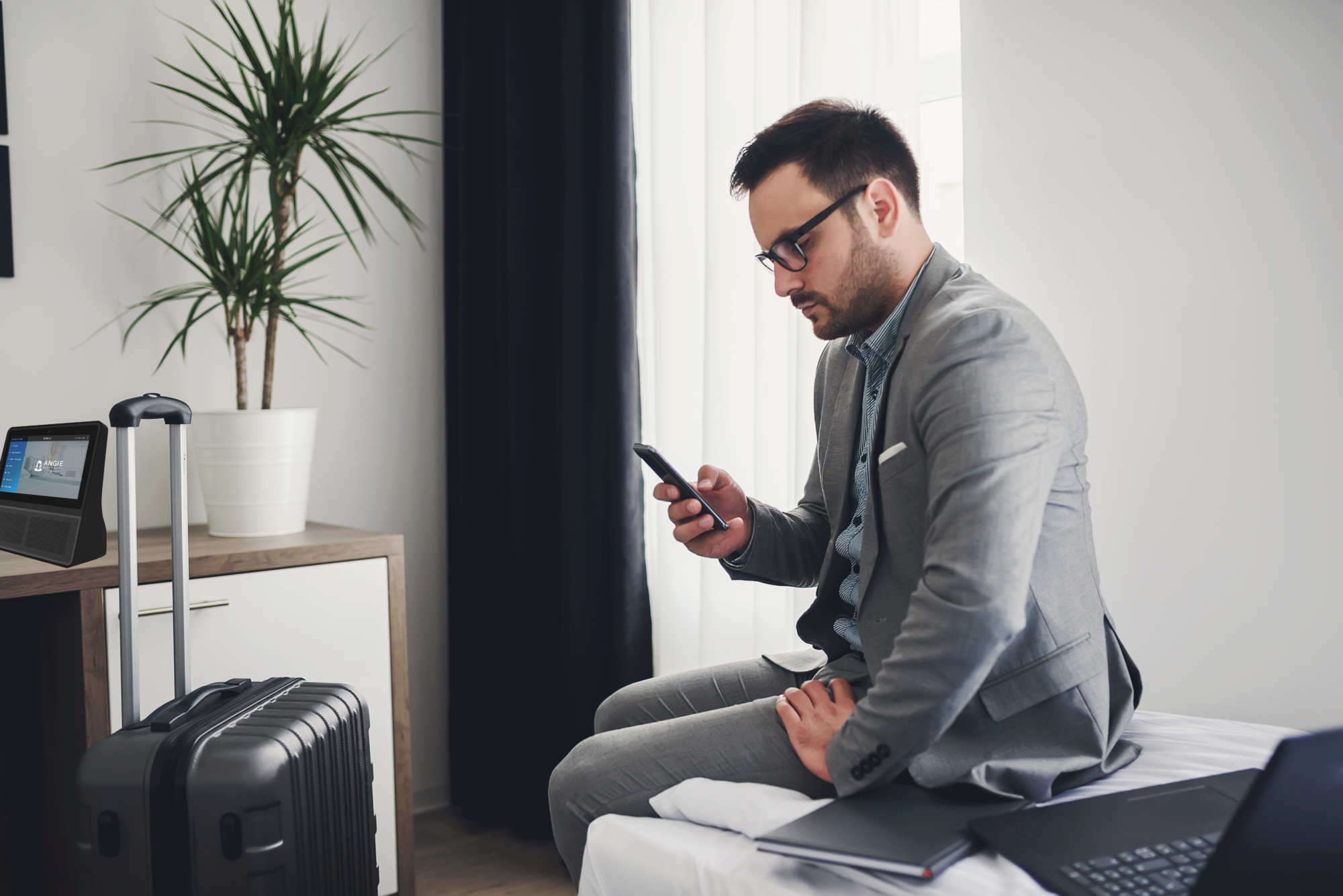In this guest column, David Millili , CEO of Angie Hospitality says it’s time to take a fresh look at adding artificial intelligence (AI) to the payroll and why AI should be embraced as a staff enabler and not a replacement.

I’m old enough to remember a time when skeptics said computers were going to replace jobs. Of course, the exact opposite happened, and early adopters of technology positioned themselves and their businesses for success.
Now, we’re at an inflection point again; the pandemic has changed the game for hotels. Plans for digital transformation were reduced from two years to two weeks, and it has created a digitalization urgency like no other. The time has come to take a fresh look at adding AI to the payroll, and like with the dawn of computing technology, AI should be embraced as a staff enabler, not a replacement.
While COVID-19 may have created a new requirement for digital touch points, the art of hospitality would be completely lost without our human team members. Good customer service takes time and AI can be an ally to help staff better serve guests.

Here are the top five reasons hoteliers should implement this approach now.
1. Give guests what they want
Guests are interacting with AI on a daily basis in their homes, so why not add AI solutions to your team? According to Statistica, the number of AI-powered voice assistants will reach 8.4 billion globally by 2024, a 145% increase from 2019.
Need more towels brought to the room? Just ask your friendly AI assistant. Want to book a spa appointment, a late check out, dinner reservations or luggage moved to your room? AI can do that too. Now if they could just take care of folding laundry and cooking dinner at home…
2. Improve personalisation and loyalty
According to a survey by Criteo, 82% of travelers enjoy travel loyalty programmes, and most of these travellers are willing to share their data for more personalised benefits. Pair an infinite capacity for remembering guest preferences along with a unique ability for collecting, sorting and analysing data, and hotels can personalise the guest stay on a granular level – menus are tailored to reflect guest favourites, adjust room settings to meet guest preferences and send customised offers to the most likely takers.
Even after checking out, AI can help hotels effectively target guests with personalized offers for returning stays. Oracle Hospitality shares that 90% of guests would appreciate the ability to accept or reject offers so that the hotel loyalty programme can learn what products and offers they are most interested in. It’s 5x more costly to attract new customers than it is to retain an existing customer. Your AI staff member can uplevel and create a better, more personalised experience.
3. Boost sustainability and efficiency
A survey of Hilton guests found that one third of travelers research hotel sustainability practices before booking. AI-based tech can recognize when a room is vacant and adjust the thermostat, lighting and curtains to optimal settings for maximum cost savings and eco-friendliness. Instead of waiting for housekeeping to set the room controls back to default after guests check out, this can be done instantly.
AI can also intercept and track guest requests to reduce strain on staff. If a guest needs more towels or would like their room cleaned, they can ask a virtual assistant instead making a call, and the request is automatically routed to the right department. Tech can work to augment your current staff members and allow them to be more effective throughout the guest journey.

4. Address stringent cleaning
Research by P&G found that 70% percent of guests now expect more thorough and frequent cleaning throughout the property, especially in common areas. In order to help with additional cleaning, robots can actually take on duties like vacuuming, scrubbing floors, or washing windows, and use AI to quickly map out the hotel and “learn” the best routes.
Another option is to use UV light or electrostatic sprayers to clean quickly and efficiently. Used regularly in hospitals, and being introduced in airports, UV disinfection robots are actually more effective and consistent than human cleaning, killing 99.99% of bacteria and germs in common areas and in rooms.
5. Remove touch points
AI can allow guests to avoid touch points and offload already stretched front desk staff by answering questions about hotel information such as when the pool opens and giving guests local suggestions for pizza restaurants or family-friendly activities. Technology can also reduce phone calls or touch points completely during certain periods where staff may be limited. Hotels, such as the Hilton McLean and Hotel Sky, have adopted digital concierges to offer recommendations and even bring luggage up to guest rooms. Hotel Trio in California has a robot named Rosé that can navigate elevators and hallways to offer contactless delivery of wine (and other snacks, toiletries and extra towels) to guest rooms.
There is no question that this last year has been tough on hotels and staff. Wouldn’t it be nice to boost guests’ confidence and relieve staff with a team member that takes on monotonous tasks and never needs a break? Adopting AI-powered technology increases staff productivity, operational efficiency and guest satisfaction. The demand for AI is there and investing in these tools will help with recovery and build a stronger foundation for the future.


Comments are closed.